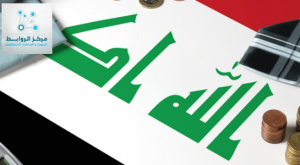BY: Shatha Kalel
The Joint Statement by the Office of the Prime Minister and the Central Bank of Iraq marks a significant turning point in the country’s economic trajectory, with the announcement of sweeping banking reforms aimed at revitalizing Iraq’s financial landscape. These reforms are integral to the broader economic reform agenda set by the government, aiming to position Iraq’s banking sector as a modern, competitive player on the global stage. The focus on strengthening governance, enhancing services, and aligning with international standards promises to reshape not only the financial sector but also the everyday lives of Iraqi citizens.
Impact on the Iraqi Economy
The economic transformation promised by these reforms holds potential for long-term growth and stability. Iraq’s economy has long been challenged by structural inefficiencies and a lack of modern financial systems. With this new set of initiatives, the government and the Central Bank of Iraq are working in tandem to overhaul the banking sector, which serves as the backbone of any thriving economy.
Strengthening Ownership and Governance: The first area of focus is the enhancement of governance structures within Iraq’s financial institutions. By diversifying ownership and establishing stronger oversight mechanisms, the reforms will improve transparency and accountability. This shift is expected to increase investor confidence, both domestically and internationally, opening the door to foreign investments that could stimulate economic growth, create jobs, and promote long-term stability.
Raising Service Standards: One of the most crucial elements of these reforms is the improvement of basic banking services. For many Iraqis, access to banking has been limited, and the system has often been slow or inefficient. By modernizing infrastructure and expanding service offerings, the Central Bank and the government hope to bring financial services to a broader section of the population. This would not only enhance financial inclusion but also provide the tools necessary for entrepreneurship, investment, and business growth.
Conformity with International Standards: Iraq’s banking sector has long been isolated from international financial systems. The government’s commitment to aligning its practices with global standards, particularly in areas like anti-money laundering and the financing of terrorism, will be essential in gaining access to international financial markets. By ensuring financial transparency, the reforms also aim to stabilize the banking sector, making it a safer environment for savings, investments, and financial transactions.
Impact on Iraqi Citizens
While the structural reforms are crucial for economic growth, their most profound effects will be felt on the streets of Iraq. For the average citizen, these reforms can translate into tangible improvements in daily life.
Better Access to Financial Services: The enhanced banking services are expected to make financial tools like savings accounts, loans, and credit more accessible to ordinary Iraqis. This would enable individuals to build savings, access affordable credit for housing or business development, and manage their personal finances more effectively. The increased efficiency in banking operations will also reduce wait times and the bureaucratic hurdles that many have faced when trying to access their money or process transactions.
Empowerment through Financial Inclusion: With a larger portion of the population able to access banking services, there will likely be a boost in entrepreneurship. Small businesses and startups, which are vital for economic diversification and employment, will benefit from improved access to loans and credit. This could spur job creation and foster a culture of innovation. Furthermore, by enabling individuals to securely manage their finances, the banking reforms could help mitigate some of the risks associated with informal or underground financial activities.
International Integration and Economic Opportunities: As Iraq’s banking system aligns more closely with global practices, it will become easier for Iraqi businesses and citizens to engage in international trade and investments. This could reduce costs for businesses looking to import goods, while also making it easier for Iraqis to invest abroad or access international financial products. Over time, this could lead to an increase in economic opportunities and a better quality of life for the Iraqi people.
Challenges and Future Outlook
Despite the positive steps outlined in these reforms, there will be challenges ahead. Modernizing Iraq’s banking system will require significant investments in technology, infrastructure, and human capital. The successful implementation of the reforms will also depend on the political will to follow through with these ambitious plans and the continued cooperation between government institutions and the private sector.
However, if the reforms are executed as outlined, Iraq has the potential to witness a revitalization of its financial system that could stimulate economic growth, reduce unemployment, and provide citizens with the tools they need to improve their financial well-being. The reforms could also position Iraq as a competitive player in the regional and global financial markets, setting the stage for sustained growth and prosperity.
Conclusion
The banking reforms introduced by the government of Iraq, in collaboration with the Central Bank, offer a promising vision for the future of the country’s economy. With improvements in governance, service delivery, and international alignment, these changes have the potential to transform not only Iraq’s financial sector but also the everyday lives of its citizens. By opening up access to essential banking services, empowering businesses, and aligning with global financial standards, these reforms could pave the way for a more prosperous and inclusive Iraq in the years to come.
Economic Unit/North America Office
Al Rawabet Center for Research and Strategic Studies

